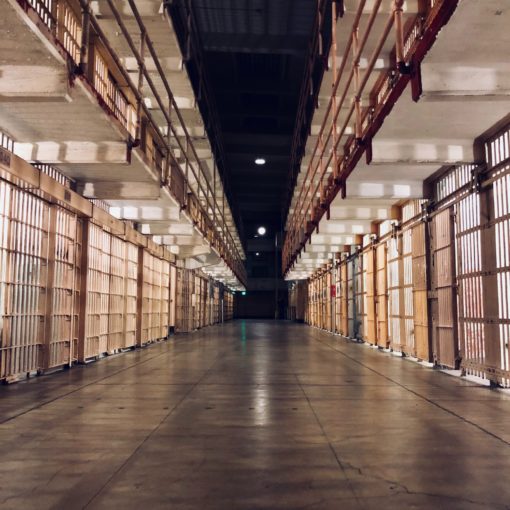“All humans are human, and not one of us is more human than the other.”
These words are spoken by Lt.-Gen. Roméo Dallaire, at his talk on October 21st at Horton High School. I am forced to look up from my half-scribbled notes and stare at the stage in dumfounded enthrallment. The now retired general is neatly dressed – he wears no crass colours, and keeps his hands in his pockets as he paces along the edge of the stage. The topic of the talk is the use of child soldiers in warfare. He recounts stories of Rwanda and his time there, and he mentions the moment he realized that the eyes of the orphaned child he was staring into, even after witnessing so much bloodshed, were the same eyes of his own child back in Canada, safe with his family. “We are all humans,” he says again – but what is it that makes us inflict such horror onto other humans? And what is it that makes us ignorant and reluctant to aid others in those situations?
One of the tales that the general recounts is the story of a UN patrol travelling the country-side, eventually encountering a small village in Rwanda whose population had been massacred. In the town, there existed a massive rape site. A trench in the mud, full of women and children who had been corralled, raped, mutilated, and left for dead. The commander of the platoon was unsure if he should send his soldiers into the trench to comfort the dying women who remain alive, laying in the mud bleeding, or if he should continue without stopping. To jump in would mean to risk contracting HIV and wasting the limited food and water resources they had. But he didn’t even have time to decide. The soldiers had already unstrapped their packs and were entering the pit.
It is part of the changing nature of warfare. A new era, where civilians are the prize, the targets, and the weapons. Where militants have resorted to using human beings as a means of attack, specifically children. A crime against humanity according to the UN that is being broken by several active groups in the world today – the Boko Haram, the LRA, and of course, ISIS. There is not one conflict on this planet that is not currently using child soldiers. It’s a brutal but effective tactic – if a soldier on the battlefield had a six year-old boy charging towards him in his crosshairs and pulled the trigger, how could he go home after his mission and hug his own kids? The kids are expendable. You can send them out on the mine fields to trigger IEDs. Moreover, children are generally easy to manipulate. The step from a simple political movement to a fully indoctrinated youth militia is a small one. However, the cost is too great – “We are mortgaging our future,” Dallaire says. He is right. But the issues we are talking about seem so far away, so distant, that it appears almost futile to do anything about it. So say the politicians.
Just look at the refugee crisis in Europe, where thousands of displaced individuals are fleeing from their oppressive, brutish government in search of freedom and democracy. They are instead greeted with cold, if not outright hostile treatment. Donald Trump has pledged that if elected, he will send all Syrian immigrants back, claiming that we have to look out for ourselves first and foremost. Who does he mean by ourselves? Americans? Christians? European-descended folk? The truth was eloquently stated by John Green in a recent video of his. “Ourselves” includes all of humanity, sharing this one small planet together. The only alternative concept of “ourselves” is an artificial construct we have created. Biology has shown that there is no genetic difference between people of different races. We are all the same species.
The general did not give any answers during his talk. He presented the crisis, and he urged for a more preventative approach to stopping the use of children in war, but no solid plan or concrete implementation was given. But maybe that wasn’t the point of the talk. We will not be able to directly impact the choices made in another country across the globe. Of course, we can join non-governmental volunteer organizations, or write to our Members of Parliament, but again, I believe that the point of the talk was to urge the audience to inform themselves on these issues. Our connections with the world extends so far today, that an excuse for ignorance no longer stands.
As for the platoon that was patrolling the village in Rwanda that found the rape site: Only three out of twenty-six commanders would have made the command to help the dying women, according to Dallaire. These soldiers jumped in on their own accord – not because they were ordered to, but because they understood the horrors that had occurred, and they were not afraid to confront them. They acted out of compassion – the purest and most human traits, admirable when found in anyone. And as it was revealed, those soldiers were Canadian. They grew up in cities like you, and went to school just like you. They learned the same things you did. They worried about their unsteady futures, about their unsteady pasts. They did everything you are doing now. And when the time came, they were ready to act, and face the consequences, because they were aware of them otherwise. So I urge you: read up on Sudan, read up on Etritea. Read up on Syria and Turkey, on Armenia and Palestine. It will be depressing and sad, and you’ll never be able to solve all of the world’s problems. But maybe one day, when faced with an unspeakable horror, it will be you who selflessly jumps into the trench.





